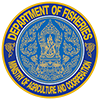Conservation and Management Measure for the Collection, Reporting, Verification and Exchange of Data relating to fishing activities in the Agreement Area (Data Standards)
The files below provide also with Excel templates to help with the collection and annual submission of data to the Secretariat.
MANEENGERN 5
Report type
Entry
IMO number
8540630
Radio call sign
HSN9398
Vessel flag state
Thailand
Latitude
-6.85
Longitude
67.91
Datetime UTC
Activity in the Agreement Area
Fishing
Heading (degree)
225.00
MANEENGERN 5
Report type
Exit
IMO number
8540630
Radio call sign
HSN9398
Vessel flag state
Thailand
Latitude
-2.48
Longitude
76.01
Datetime UTC
Activity in the Agreement Area
Transiting
Heading (degree)
240.00
MANEENGERN 5
Report type
Entry
IMO number
8540630
Radio call sign
HSN9398
Vessel flag state
Thailand
Latitude
-0.66
Longitude
80.00
Datetime UTC
Activity in the Agreement Area
Transiting

